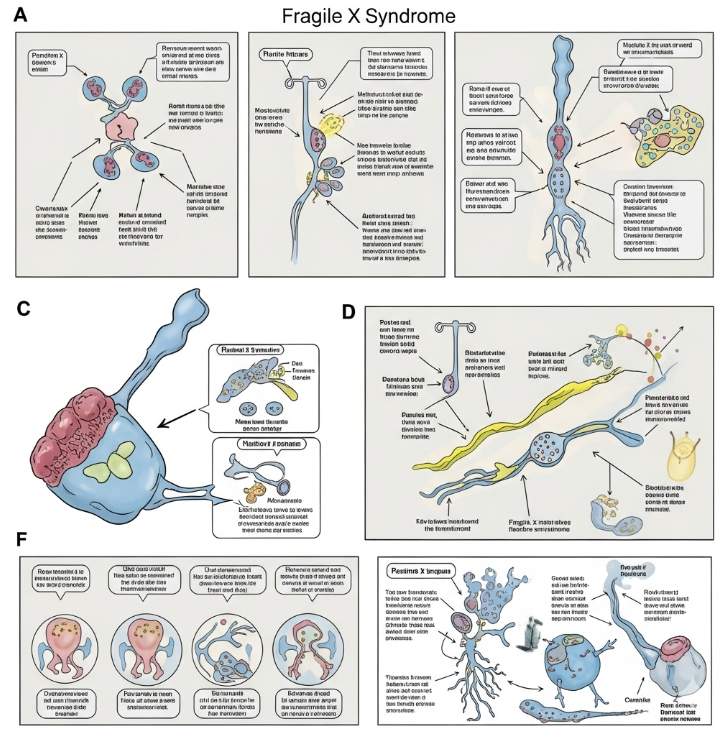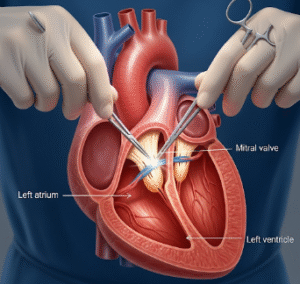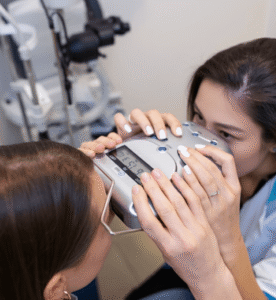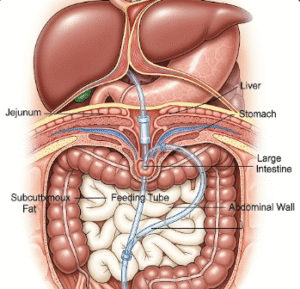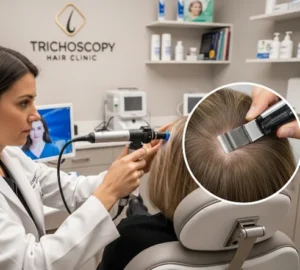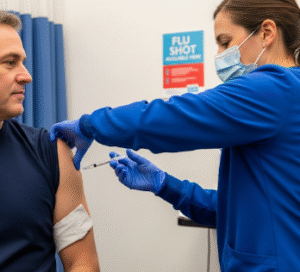Overview
Fragile X Syndrome (FXS) is a rare genetic disorder and the most common inherited cause of intellectual disability. It results from a mutation in the FMR1 gene on the X chromosome, leading to the absence or deficiency of the FMRP protein, which is essential for normal brain development and function.
The condition affects both males and females, but males typically present with more severe symptoms due to having only one X chromosome. Globally, FXS occurs in approximately 1 in 4,000 males and 1 in 8,000 females.
In Korea, genetic testing and early diagnosis of Fragile X Syndrome are accessible through advanced molecular laboratories. Treatment focuses on multidisciplinary care, including genetic counseling, speech therapy, behavioral therapy, occupational therapy, and educational support, as well as management of associated medical and psychological problems. Although there is no cure, Korea’s growing emphasis on rare disease research and personalized treatment programs provides hope for affected families.
What is Fragile X Syndrome?
Fragile X Syndrome is a hereditary neurodevelopmental disorder caused by an expansion of CGG repeats in the FMR1 gene. Normally, this gene contains fewer than 45 CGG repeats. In FXS patients, repeats exceed 200, silencing the gene and reducing production of FMRP protein.
This protein deficiency disrupts synaptic communication in the brain, leading to intellectual, behavioral, and emotional symptoms.
Symptoms
Symptoms vary widely but may include:
- Cognitive & Developmental:
- Intellectual disability (ranging from mild to severe, more common in males)
- Learning difficulties
- Delayed speech and language development
- Behavioral & Emotional:
- Social anxiety, shyness, or avoidance of eye contact
- Hyperactivity and impulsivity
- Features overlapping with autism spectrum disorder (ASD)
- Aggression or mood swings
- Physical Features:
- Long, narrow face with prominent ears
- High-arched palate
- Flexible joints (hyperextensibility)
- Flat feet
- Enlarged testicles in males after puberty (macroorchidism)
- Neurological:
- Seizures (in some patients)
- Poor motor coordination
- Sensory sensitivities (sound, light, textures)
Causes
- Genetic mutation in the FMR1 gene on the X chromosome
- Expansion of CGG nucleotide repeats (>200 full mutation causes FXS)
- X-linked inheritance pattern (mothers can be carriers and pass mutation to children)
Risk Factors
- Family history of Fragile X Syndrome or intellectual disability
- Mothers carrying FMR1 premutations (55–200 CGG repeats)
- Male sex (more severe expression due to single X chromosome)
Complications
- Autism spectrum disorder (ASD) – around 30–50% of Fragile X patients
- ADHD and learning disabilities
- Seizures (10–20% of cases)
- Behavioral and social difficulties affecting quality of life
- Infertility issues in female carriers (Fragile X-associated primary ovarian insufficiency)
- Emotional stress for families due to lifelong care needs
Prevention
Since Fragile X is genetic, it cannot be completely prevented, but steps can reduce risks:
- Genetic counseling for at-risk families
- Carrier testing (especially in women planning pregnancy)
- Prenatal genetic testing (amniocentesis or chorionic villus sampling)
- Preimplantation genetic diagnosis (PGD) during IVF to avoid passing the mutation
Treatment Options in Korea
Diagnosis
Korea offers advanced genetic testing for early and accurate diagnosis:
- DNA testing for FMR1 mutation (gold standard)
- PCR & Southern blot analysis for CGG repeat size and methylation status
- Prenatal testing for families with a history of FXS
Medical Treatments
While no cure exists, treatment focuses on managing symptoms:
- Medications:
- Stimulants (e.g., methylphenidate) for ADHD symptoms
- SSRIs or antianxiety drugs for anxiety and depression
- Anticonvulsants for seizure control
- Emerging therapies:
- Trials in Korea and globally for targeted molecular therapies (e.g., mGluR5 antagonists, GABA agonists)
Surgical or Advanced Therapies
Surgery is not typically required, but advanced interventions may include:
- Assistive technologies for communication
- Stem-cell and gene therapy research (under clinical trials in Korea and internationally)
Rehabilitation and Support
- Speech therapy: improves communication skills
- Behavioral therapy: reduces aggression and improves social interactions
- Occupational therapy: helps with motor skills and daily functioning
- Special education programs tailored for intellectual disabilities
- Family counseling & support groups (available through Korean rare disease foundations)

